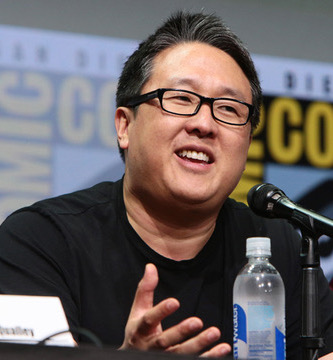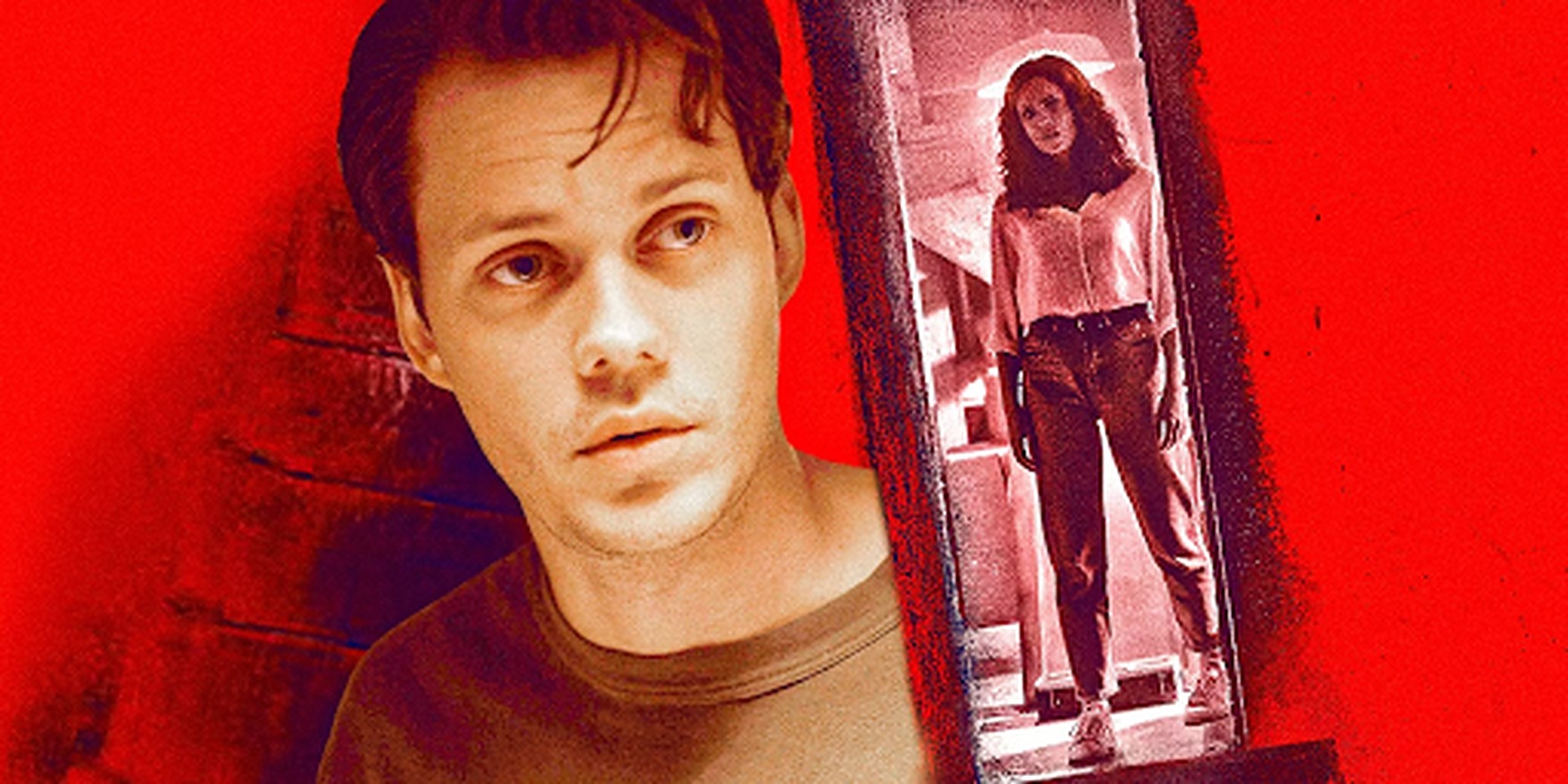Roy Lee is a producer at Vertigo Pictures. He is best known for his films in the horror (Barbarian, It, The Ring), and not so horror (Lego Movie, How To Train Your Dragon) genres. He spoke to Creative Screenwriting Magazine about the film business and how writers can best utilize it, especially those in the horror and thriller genres.
Roy began his film and TV career with co-creating the web-based coverage script coverage service ScriptShark which he later flipped for a tidy profit. Later, he formed Vertigo Pictures with his business partner Doug Davison which specialized in selling remake rights of Asian films. Today, Vertigo Pictures is a powerhouse film production company with many popular titles in its library.
“Being a film producer is the best thing for me because I like to work on many things at once. If you’re a writer or director, you can only focus on one thing at a time,” stated Lee. He thrives on his ability to put films together that he wants to watch himself. He conceded that he’s neither a writer nor a director, but he can get your film made if you have a great script.
Roy Lee didn’t consciously set out to fill a gap in the market place by exclusively focusing on horror and thriller movies. “It’s mainly because of my own tastes. I feel I understand these movies better because I watch so many of them and really enjoy them. I want to make timeless films I haven’t seen before that can be remembered twenty-five years from now.” He commented that there are hundreds of these genre films made each year and perhaps, one or two, stand the test of time.
“I wouldn’t consider a movie based on a social media killer because some platforms may not even exist in five years time or the idea feels dated.”
He considers Barbarian, It and The Ring to be the films that best define the Vertigo Pictures brand. Since Lee became a father, he also wants family films like The Lego Movie and How To Train Your Dragon to be part of the Vertigo slate. There were also business considerations in becoming involved in the latter since they have existing IP and a broad fan base.
“Vertigo Pictures and their investors tend to go with the lower-budgeted horrors and thrillers and the big budget IP based movies since they generate the best returns.”
Lee’s main source of new projects comes from his sprawling network of fellow producers and other industry contacts. He also extends his producing hand to less-established producers looking to get their projects off the ground. Vertigo Pictures has connections with studios, financiers, and distributors that he can quickly tap into.
The most unusual place he sourced a project was from a YouTube video called Tickle Monster. Lee was so inspired that he reached out the creator Remi Weekes and the short video loosely became His House. It is based on the concept of the haunted house which extracts your fears and uses them against you. “It’s a totally different character piece.”
Roy Lee reads many scripts. “If I’m not grabbed in the first act, I won’t finished reading the script. I know in the first twenty-five pages if it’s something I’d want to make.” He really does need a screenplay because concept pitches or synopses are not tangible enough to produce or sell. “I need a screenplay that is fully realized. I can’t do anything with just an idea.”
Although many screenwriters like to write to the market, they can rarely second guess it better than the industry itself. Not only does Lee recommend writing what you love, he suggests writing what you’re good at. “Write an interesting story that feels unique. Many producers pass on scripts because they’ve seen the concept before, or they know what the script’s going to be very early on in the read.” Roy claimed that after reading the first act, he can easily guess the main beats of the rest of the script with an astonishing ninety percent accuracy.
Although having an entire project handed to him is nice, Lee is happy doing all the legwork to see a film made. “Just send me a great script and I’ll do all the work to put everything else together,” he claimed. Sounds like a dream producer! Sometimes attachments like an actor or finance can be a hindrance, especially if they aren’t a financier’s preference, or there are ominous strings attached. “For me, it’s better to have none.”

Roy Lee
The terms horror and thriller mean slightly different things to different genre aficionados. Horrors need to be scary and thrillers need to be thrilling. One is driven by fear and the other by anticipation. Vertigo pitches such projects as siblings on the same family. The financiers and talent typically overlap, so they are sold in a similar way. “Is Se7ven a horror or thriller?,” pondered Lee. Although he settled on horror, it’s one of his favorite films, so the exact genre category isn’t important. Lee prefers the genre scientists to battle it out on their own.
“Other than big IP, horror and thriller scripts are the ones studios are most interested in,” said Lee. “Movies like SMILE, Barbarian and M3gan most benefit from the communal viewing experience in the theater.” They thrive on collective fear. Another benefit of watching movies on the big screen is that there are fewer distractions than there might by on your television or other viewing device.
Horror movies can also be made on a lower budget than action and science fiction films, especially if practical rather than special effects are used. There is a niche space for medium budget horror films like It. “It did moderately well and if that’s what the movie requires and people watch them, these films will continue to get made.”
Roy Lee reads a lot, but he doesn’t claim to be a screenwriter. But he does give notes on screenplays. “For me, the most common notes relate to logic issues. I tend to want to put myself in the character’s shoes so I want them to do things that make sense to them.” He also reacts badly to unmotivated action in scripts. “The audience will groan when a character acts in a certain way and they think, ‘There’s no way they would do that.‘”
Putting yourself in a character’s shoes means that it could happen to you and it isn’t far removed from reality.
Roy Lee is a fan of the genre and the horror classics influence his tastes. “At the time when The Exorcist came out in 1973, it was something totally new and unique for the audience.” He conceded that coming up with a completely original idea today is difficult given that everything has generally been done before. A new spin on a familiar idea will capture his interest. Needless to say, he’s read more than his fair share of pandemic-based scripts lately because it’s still a relatively new genre, so writers should have a fresh of inventive way of approaching such a story.
Roy Lee uses his intuition to choose a movie that stands the test of time. Apart from very specific short-lived cultural references, he looks at films with “a universal fear that is evoked in any era. The scares evoked by The Exorcist in 1973 are the same scares evoked today because the fears are the same.”
The producer sometimes visits his sets and allows his writers to accompany him in the case of certain changes required. Lee quoted an example from Watcher (2022). “Much of the movie was told from the husband’s point of view. It went back and forth between the husband and wife’s point of view.” Given that the film was concerned with a serial killer attacking women, some scenes were rewritten by writer/ director Chloe Okuno to focus on the wife’s perspective while on set.
Although studios and many screenwriters meticulously dissect their audience demographics, Roy Lee prefers not to. “I just aim for a general movie-going audience. I generally don’t worry about how a teenager or adult might evaluate a certain film. For me, a film is for all audiences.”
We pressed Roy Lee to name his favorite modern horror films that he wished he could have been part of. He cited The Quiet Place and The Conjuring movies.
When Lee reads a knew script, he’s looking to be surprised. He also loves sparsely-written scripts with lots of white space on the page. “I read scripts quickly, so the faster I can read them, the faster I can decide if I’m interested.”
Lee doesn’t expect screenwriters to be familiar with every film comparable to theirs. “However, I do expect them to be familiar with films that have come out in the past few years as well as what’s in production.“
